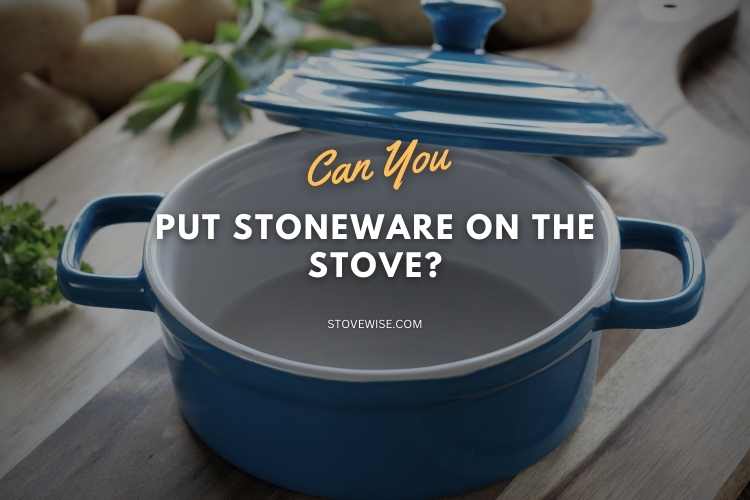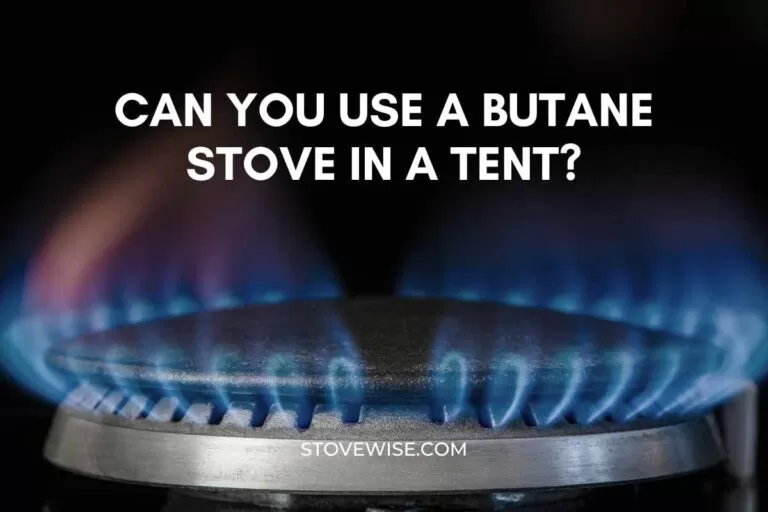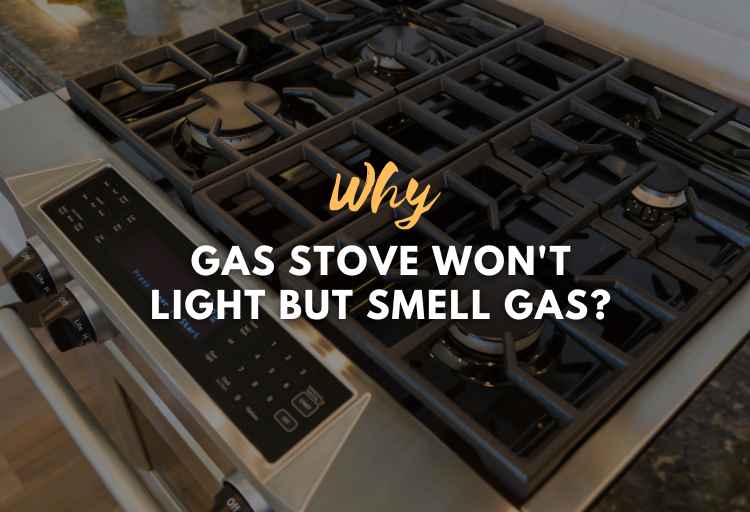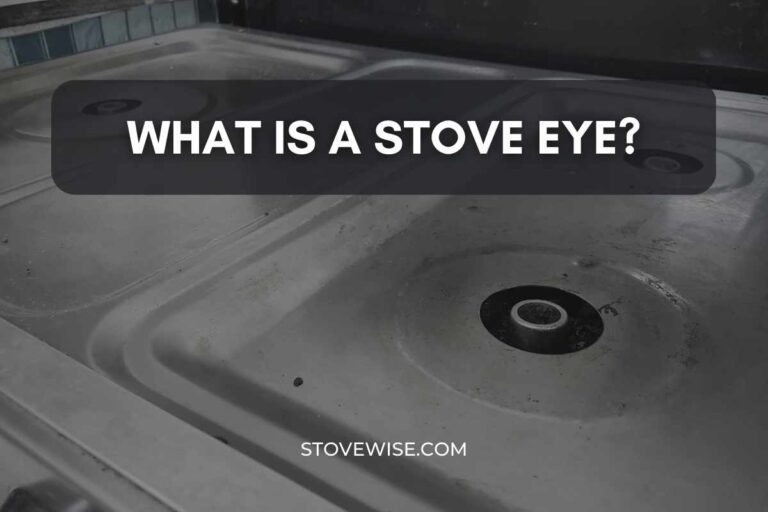What Happens If You Use Propane on a Natural Gas Stove?
If you’re considering using propane on a natural gas stove, you need to be aware of the potential dangers. The two gases have different properties that can cause serious problems if they’re not handled correctly.
Using propane on a natural gas stove can cause several potential dangers, including fires and explosions, carbon monoxide poisoning, and gas leaks. It’s important to use the right gas for your stove and to install the right components to regulate the gas flow.
Additionally, you should make sure that the area where the stove is located is well-ventilated and have your stove inspected regularly by a professional.
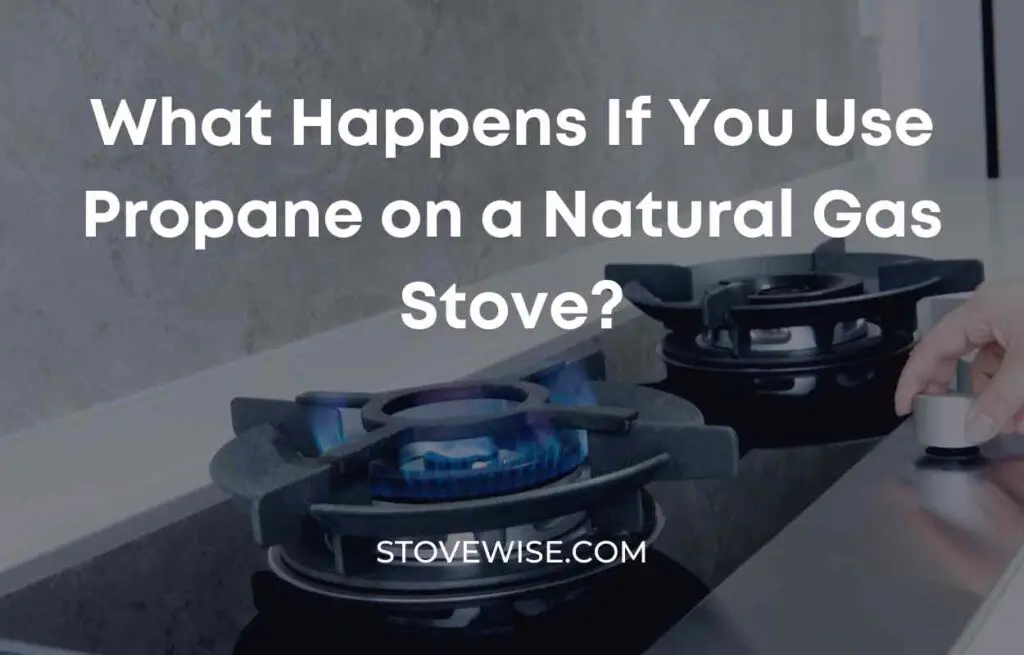
Contents
- Is Natural Gas the Same As Propane?
- What Happens If You Use Propane on a Natural Gas Stove?
- How Do You Know If Your Gas Stove Is Natural Gas or Propane?
- Is It Possible to Convert a Natural Gas Stove to Propane, and How Is It Done?
- The Dangers of Using Propane on a Natural Gas Stove
- How to Avoid These Dangers?
- Conclusion
Is Natural Gas the Same As Propane?
Natural gas and propane are two different types of gases that are used for cooking and heating in homes and businesses.
Natural gas is a fossil fuel that is extracted from the ground, while propane is a hydrocarbon gas that is stored in pressurized tanks.
Although they are both used for similar purposes, they have different properties and cannot be used interchangeably.
What Happens If You Use Propane on a Natural Gas Stove?
Before we dive into the potential dangers of using propane on a natural gas stove, it’s important to understand the differences between the two gases.
Propane is a hydrocarbon gas that is stored in pressurized tanks. It’s commonly used for heating, cooking, and powering appliances in homes and businesses. Propane is heavier than air, which means that it sinks to the ground if it’s released into the air.
Natural gas, on the other hand, is a fossil fuel that is extracted from the ground. It’s lighter than air, which means that it rises if it’s released into the air. Natural gas is commonly used for heating, cooking, and powering appliances in homes and businesses.
If you try to use propane on a natural gas stove, several potential dangers can arise. Propane is a highly flammable gas that can ignite easily if it comes into contact with a spark or flame. If you use propane on a natural gas stove, the flame can become too large and cause a fire or explosion.
This can be especially dangerous if the propane tank is stored in a confined space, such as a kitchen. Propane is also known to produce a colorless gas called carbon monoxide.
Using propane on a natural gas stove means that you are likely to inhale this gas, which can result in carbon monoxide poisoning. Carbon monoxide is a dangerous gas that can cause headaches, dizziness, nausea, and even death.
How Do You Know If Your Gas Stove Is Natural Gas or Propane?
To determine if your gas stove is natural gas or propane, you can check the label on the stove or consult the owner’s manual.
If you’re unsure, you can also contact the manufacturer or a professional technician to help you identify the type of gas your stove uses. If you want to convert a natural gas stove to propane, it’s possible to do so, but it should be done by a professional.
The process involves replacing the natural gas orifices with propane orifices, installing a propane regulator and hose, and adjusting the air-to-gas ratio to ensure that the stove operates correctly.
Is It Possible to Convert a Natural Gas Stove to Propane, and How Is It Done?
To avoid these dangers, it’s important to use the right gas for your stove. If your stove is designed to use natural gas, then you should only use natural gas.
If you want to switch to propane, you’ll need to have your stove converted by a professional. It’s also important to install the right components to regulate the gas flow, including a propane regulator and a propane hose that connects the regulator to the stove.
Additionally, you should make sure that the area where the stove is located is well-ventilated to avoid carbon monoxide poisoning.
Finally, you should have your stove inspected regularly by a professional to ensure that the components are working correctly and that there are no gas leaks.
The Dangers of Using Propane on a Natural Gas Stove
If you try to use propane on a natural gas stove, there are several potential dangers that you need to be aware of:
Fires and Explosions
Propane is a highly flammable gas that can ignite easily if it comes into contact with a spark or flame. If you use propane on a natural gas stove, the flame can become too large and cause a fire or explosion. This can be especially dangerous if the propane tank is stored in a confined space, such as a kitchen.
Carbon Monoxide Poisoning
Propane is known to produce a colorless gas called carbon monoxide. Using propane on a natural gas stove means that you are likely to inhale this gas, which can result in carbon monoxide poisoning. Carbon monoxide is a dangerous gas that can cause headaches, dizziness, nausea, and even death.
Gas Leaks
Using propane on a natural gas stove can also cause gas leaks. Propane is stored in pressurized tanks, which means that it needs to be regulated before it’s used in a stove. If you try to use propane on a natural gas stove without the necessary components, such as a regulator, the gas can leak out and cause an explosion or fire.
How to Avoid These Dangers?
To avoid the dangers of using propane on a natural gas stove, it’s important to take the following steps:
Use the Right Gas
The first step to avoiding the dangers of using propane on a natural gas stove is to use the right gas. If your stove is designed to use natural gas, then you should only use natural gas. If you want to switch to propane, you’ll need to have your stove converted by a professional.
Install the Right Components
If you’re using propane on a natural gas stove, you’ll need to install the right components to regulate the gas flow. This includes a propane regulator, which reduces the pressure of the gas before it enters the stove. You’ll also need to install a propane hose that connects the regulator to the stove.
Ventilate the Area
Propane produces carbon monoxide, which can be dangerous if it’s inhaled in large quantities. To avoid carbon monoxide poisoning, you should make sure that the area where the stove is located is well-ventilated. This means opening windows and doors to allow fresh air to circulate.
Have Your Stove Inspected Regularly
If you’re using propane on a natural gas stove, it’s important to have your stove inspected regularly by a professional. This will ensure that the components are working correctly and that there are no gas leaks.
Conclusion
In conclusion, using propane on a natural gas stove improperly can be deadly. Carbon monoxide, which is produced by propane and can result in carbon monoxide poisoning, is a highly combustible gas that can cause fires and explosions.
Use the proper gas, install the correct parts, ventilate the space, and have your stove tested frequently to eliminate these risks. You may take advantage of the advantages of using propane on a natural gas stove without putting yourself or your family in danger by following these instructions.

